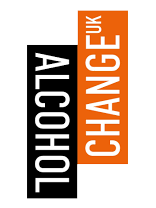A new approach to measuring drinking cultures in Britain
The project aimed to understand the UK's drinking culture by identifying and analysing specific drinking occasions and their role in broader social and cultural contexts.
Introduction
When governments propose changes to alcohol policies, the announcement is often followed by public debate on the potential for the policy to change the country's drinking culture. The UK Government's 2012 Alcohol Strategy made changing the drinking culture a strategic policy aim. However, specifying what the drinking culture is, what is problematic about it, what it should be changed to, what interventions might trigger such a change and whether success has been achieved, have all been problematic topics in alcohol policy discourse and the research literature.
Existing literature has typologised drinking cultures along a series of key dimensions which risk conflating varied drinking behaviours into homogenous 'national drinking cultures'. An alternative literature which characterises drinking cultures of different societal groups through detailed description, using qualitative methods, fails to adequately address the variety of drinking cultures which exist within and across nations.
We aimed to address this by focusing on one key manifestation of a nation's drinking culture: drinking occasions. We developed typological models of drinking occasions and supplemented these with focus group research in order to gain greater understanding of how drinking occasions relate to drinkers' broader social and cultural lives.
Research methods
We used an embedded mixed methods approach with the qualitative components informing and validating the main quantitative study.
Key project information

This research was funded by a Research and Development Grant [R 2013/08] from Alcohol Change UK (formerly Alcohol Research UK).
Dates
September 2013 – January 2015
Research team
Professor John Holmes
Melanie Lovatt
Dr Abdallah Ally
Professor Alan Brennan
Professor Petra Meier
Key contact
Final report
The findings were published in the report A new approach to measuring drinking cultures in Britain which is available to download from the Alcohol Change UK website. A executive summary is also available.
Papers
Meier PS, Warde A, Holmes J (2017) All drinking is not equal: how a social practice theory lens could enhance public health research on alcohol and other health behaviours Addiction DOI: https://doi.org/10.1111/add.13895
Ally A, Lovatt M, Meier PS, Brennan A, Holmes J (2016) Developing a social practice-based typology of British drinking culture in 2009-2011: Implications for alcohol policy analysis Addiction DOI: https://doi.org/10.1111/add.13397
News articles and other media
April 2016, British drinking culture mixes moderation and excess, our new study shows, John Holmes writes for The Conversation.
March 2016, Using social practice theory to measure British drinking culture, John Holmes at Alcohol Research UK's annual conference (VIDEO).
March 2014, A new approach to measuring drinking cultures in Britain Melanie Lovatt at Alcohol Research UK's early career researcher conference (VIDEO).
You might also be interested in…
-
New report reveals key features of no- and low-alcohol drinks market
The first of a new series of reports into no and low alcohol drinks was published today (15 January 2024) by the Sheffield Addictions Research Group.
-
Evaluating the impact of minimum unit pricing in Scotland on harmful drinkers
This project evaluated the impact of Scotland's minimum unit pricing (MUP) policy on people drinking at harmful levels, including those with alcohol dependence.
-
Digital interventions to reduce alcohol-related harm: a rapid horizon-scanning review
A rapid horizon scanning review of the published and grey literature on digital interventions to reduce alcohol-related harm covering the period January 2017 to April 2019.
